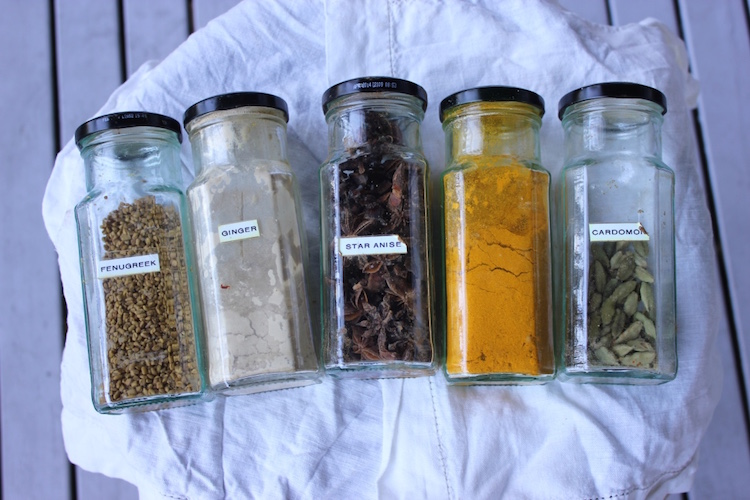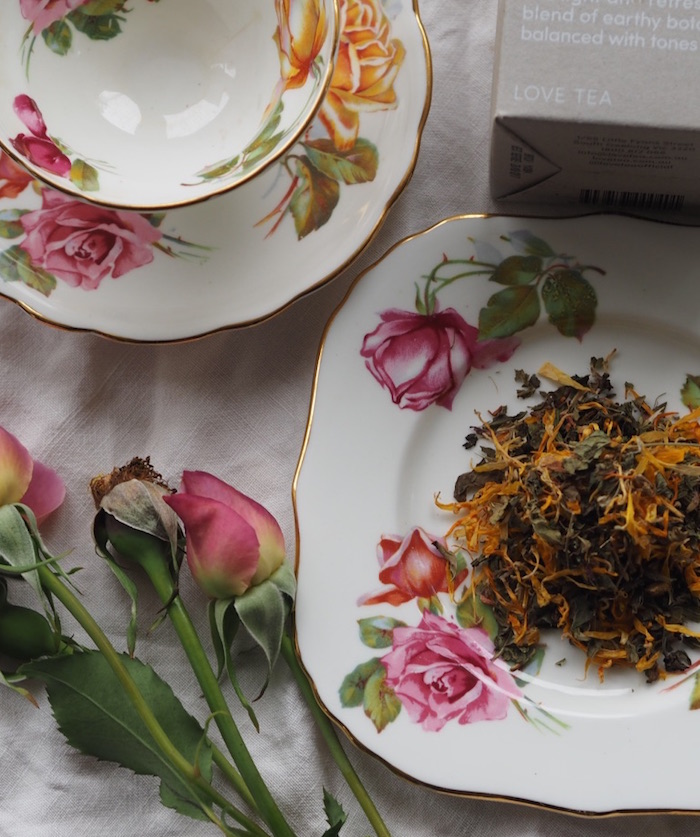10 Simple Ways To Ditch Plastic In Your Kitchen
Plastic seems to have wriggled its way into nearly everything nowadays, whether it's as packaging or as the end product.
Walking down the fresh produce section of most supermarkets breaks my heart a little - seeing so much plastic packaging that's soon to enter landfill. Then there's the plastic bags, water bottles, disposable cutlery and more that are thrown away each day.
Apparently, 300 million tons* of plastic is produced each year, and 85% of it isn't recycled. It instead ends up in landfills and in the ocean (where 8.8 million tons of plastic pollute sea life annually). Wow.
I get it though, plastic is convenient. And sometimes it's quite difficult to avoid.
BUT, there are many easy ways to cut down on it. All it takes is a little extra thought and planning. Let's start in the kitchen.
Here are 10 simple ways to ditch the plastic..
(Bonus, these tips'll also save you money and are better for your health.)
1. Buy in bulk
Shop at bulk grocery stores, where you can bring in your own containers or bags and pay by weight. This is a great and affordable way to stock up on healthy pantry staples, such as grains, legumes, nuts, seeds and spices.
If you forget to bring your own containers, using compostable or recycled paper bags and purchasing in bulk is still a great way to go.
(If you live in Australia, you can find a list of bulk food stores here.)
2. Homemade Condiments
Many condiments are actually super easy to make yourself! Nut/seed butters, plant-milks, dips, dressings and sauces can all be easily whipped up in your kitchen, as an alternative to overly-packaged and preservative-laden store-bought versions. Here are some ideas to try:
- Easy Homemade Nut Milk
- Healthy Ketchup
- 5-Ingredient Chipotle Aioli
- Tofu Cashew Mayonnaise
- Lemon Almond Parmesan
- Raw Probiotic Cashew Yogurt
3. Carry Fold-Up Shopping Bags
Keep a fold-up shopping bag on you whenever you're out, for any spontaneous/unplanned shopping, so you won't need to reach for a plastic bag. And of course when you plan to go grocery shopping, bring lots of reusable bags!
4. Bake More
5. Grow Herbs & Vegetables
There is so much pleasure in eating a meal with produce that you've grown yourself. Herbs like thyme, rosemary, coriander and mint are all quite easy to grow, even with minimal space. If you've got a little more land, try growing your own vegetables and fruits too.
6. Reuse Containers
Glass jars can be very useful storage containers. We store our bulk-purchased spices in chutney jars, which we've collected over the years (shown above).
Large coconut oil jars are great for storing flours, grains (e.g. rice, pasta, millet etc) and legumes (dried lentils, chickpeas and beans) that you have in large quantities. Smaller jars work well for nut butters, sauces, dips and dressings. (We're addicted to Botanical Cuisine's cashew cheeses, so we have err 'a few' of their marvellously-sized jars). Leftover dishes can be stored in these too, and if you find yourself with too many jars, why not make a batch of truffles or spiced nuts to put in them, and gift them to a friend?
7. Batch Cook Legumes
Cut down on BPA-lined cans of beans, chickpeas and lentils, and opt for dried legumes instead. They're much cheaper this way, and result in minimal waste.
Admittedly they do take longer to prepare this way, but if you cook up a large batch of them, you can portion them out and store them in the freezer for future use. The same deal goes for grains too. Ready-cooked brown rice, quinoa, millet etc are always useful to have on hand in the freezer, and will help you create fast, wholesome meals.
8. Seek Out Loose Groceries
So many supermarkets store their fresh produce in layers and layers of plastic packaging. Always opt for those stored loosely where possible. Better still, shop at farmer's markets, at organic/sustainably-minded grocery stores or order loose produce delivery boxes.
9. Make Loose Leaf Tea
A delicious, soul-warming cup of tea has no need for individually bagged and wrapped teabags. What a waste of packaging! Choose organic, loose leaf tea wherever you can. If you find teapots and strainers a bit of a hassle, try using tea strainer tongs, which are perfect for individual cups of tea.
You could even go the extra mile and purchase your tea from weight-based bulk grocery stores, or opt for biodegradable packaging (like that of Love Tea shown above).
10. Store Food & Drinks in Platic-Alternatives
Keep leftover meals in glass dishes, rather than those made from plastic. Even if they still have a plastic lid (choose BPA free), it'll still result in less plastic and will also mean your food won't need to touch it.
Opt for lunch boxes and water bottles made from stainless steel or glass.
A final note: we are by no means perfect ourselves, and we don't always adhere to these plastic-free tips 100% of the time. We are however becoming increasingly aware of our environmental impacts, and are constantly aiming to minimise our waste.
It's wonderful to see such a growing movement of environmental consciousness, and we're constantly inspired by 'zero-wasters' from around the globe. What eco-friendly ideas do you have? How do you help ditch plastic in your kitchen? xx Henrietta




